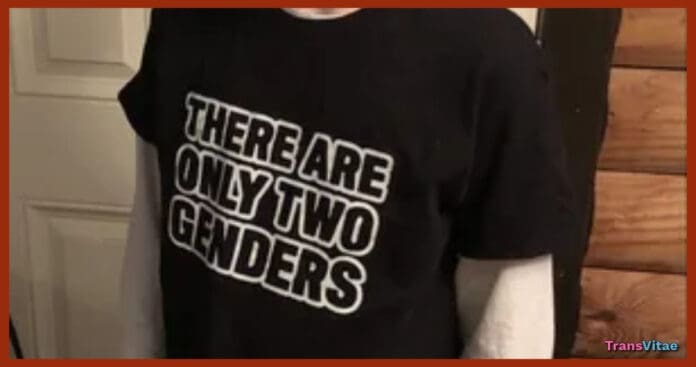The U.S. Supreme Court has declined to review a case brought by the guardians of a Massachusetts student who was barred from wearing a shirt to school that stated, “There are only two genders,” a slogan widely understood to deny the identities of transgender and nonbinary people.
The decision, issued Tuesday, lets stand the lower court rulings in favor of the Middleborough Public School District, which barred the student, referred to as L.M. in court documents, from wearing two shirts with anti-transgender messaging. A second shirt worn by the student read, “There are [censored] genders,” with the original wording undisclosed in the ruling.
Justices Clarence Thomas and Samuel Alito dissented from the court’s refusal to hear the appeal. In a joint statement, they claimed the decision undermined students’ First Amendment rights. “If a school sees fit to instruct students of a certain age on a social issue like LGBTQ+ rights or gender identity, then the school must tolerate dissenting student speech on those issues,” Alito wrote.
However, lower courts concluded that the Middleborough school district acted within its legal authority to limit speech that disrupts the educational environment or targets vulnerable student populations. In doing so, they drew a distinction from the Supreme Court’s 1969 Tinker v. Des Moines decision, which upheld students’ right to wear black armbands to protest the Vietnam War. In this case, courts found the T-shirts in question created a hostile atmosphere for transgender students.
According to court filings, administrators at Nichols Middle School testified that allowing the shirts would significantly harm students’ mental well-being, particularly those who are transgender or gender-nonconforming. The district emphasized the vulnerability of this population, noting that some students had previously been hospitalized for self-harm or suicidal ideation linked to bullying in other schools.
“These aren’t abstract ideas debated in a philosophy classroom,” one administrator wrote. “These are lived realities for kids who are already struggling to survive.”
The student was represented by Alliance Defending Freedom (ADF), a legal organization known for challenging LGBTQ+ protections across the country. In response, the school district accused ADF of distorting facts and ignoring the serious context presented in educator affidavits. ADF’s lawsuits have increasingly become a frontline tactic in what advocates say is a broader campaign to roll back transgender rights under the guise of protecting “free speech” and “parental rights.”
While the court’s decision not to hear the case represents a temporary victory for LGBTQ+ students and school administrators aiming to promote inclusive environments, advocates remain vigilant.
The Supreme Court has already agreed to hear a far more sweeping case this term: a challenge to Tennessee’s ban on gender-affirming care for minors. The ruling, expected by early summer, could determine the future of healthcare access for transgender youth across the country, as similar bans have been passed in nearly half of all U.S. states.
For now, the court’s silence speaks volumes. But what it says next may echo even louder.


